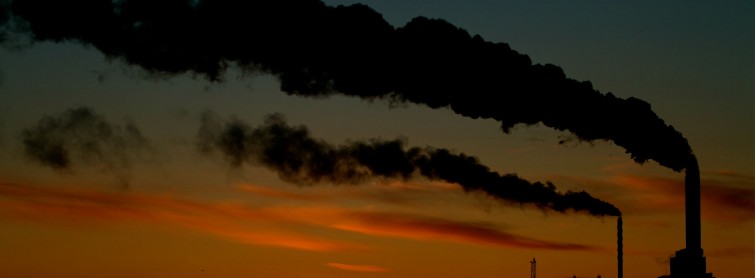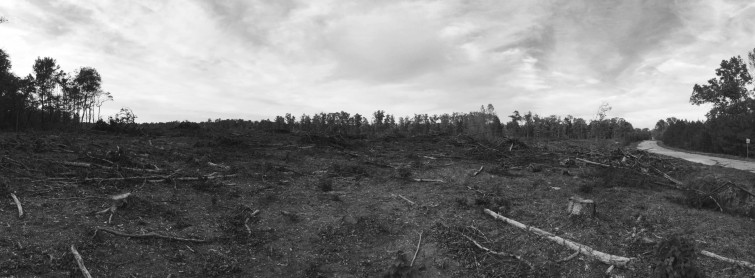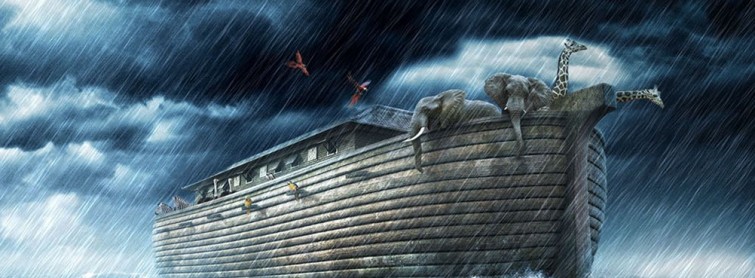Genesis 5 describes the oldest man to ever live:
“Thus all the days of Methuselah were 969 years, and he died.” (v27)
Though Methuselah did not have a starring role in the Old Testament, his life, and its length in particular, has been a subject of much interest for creationists and theologians. Nowadays, the name Methuselah has come to be associated with anything that is old.
Though Methuselah is only mentioned briefly in the Hebrew Bible, he came from a prominent line of Old Testament characters (Methuselah was the son of Enoch, the father of Lamech and the grandfather of Noah) and his final mention in Genesis 5 is of great significance, begging the question:
Why do we not live as long as Methuselah?
Some creationists argue that certain environmental and theological factors have affected our ability to age to this degree, including the introduction of sin into the original design, the elimination of the water vapor canopy over the earth. DNA and changes in lifestyle factors.
Without further ado, let’s take a look at each of these factors.
The Original Design
Anybody who has read the book of Genesis and taken notice of the genealogies it contains will have noticed a sharp shift that occurred after the flood, particularly in relation to lifespans. Creationists have long agonised over how to explain the discrepancies in lifespans in the pre- and post-flood ages but have failed to come up with any single argument to explain the difference.
Theologians, however, often argue that the solution lies back at the beginning, in the Garden of Eden.
According to Genesis, God created the first man and woman, perfect and without sin. The Garden of Eden where he placed them was abundant with everything they would need to live forever in their perfected state. Adam and Eve were commanded not to eat from the Tree of the Knowledge of Good and Evil:
“Of every tree of the garden you may freely eat; but of the tree of the knowledge of good and evil you shall not eat, for in the day that you eat of it you shall surely die.” (v16)
In Genesis 3, Adam and Eve eat from the forbidden tree and humanity is changed forever. Access to the tree which was once able to sustain their lives permanently was forbidden:
“Then the Lord God said, “Behold, the man has become like one of Us, to know good and evil. And now, lest he put out his hand and take also of the tree of life, and eat, and live forever”— therefore the Lord God sent him out of the garden of Eden to till the ground from which he was taken. So He drove out the man; and He placed cherubim at the east of the garden of Eden, and a flaming sword which turned every way, to guard the way to the tree of life.”
From this point onward, the perfect creation had been radically altered. Sin and death had entered the world and changed the original design. Humanity was no longer able to live forever.
Genesis 5 tells us that Adam eventually went onto die, as God predicted:
“Thus all the days that Adam lived were 930 years, and he died.” (v5)
The Great Deluge
In the time between Adam and Eve’s fall in the Garden of Eden and the great flood, lifespans continued to be long, though not eternal as they had been originally intended. However, after the flood, there is a progressive decline in the lifespans of the Old Testament characters, which raises questions about how the flood and the conditions of the earth after it took place, affected humanity’s claim to long life.
The decline is depicted as rather rapid, describing Noah as one who lived to be 950 years old, with Abraham living only to 175. By the time of Moses, the expected lifespan is only 70-80 years old (similar to what we would expect today):
“Our days may come to seventy years, or eighty, if our strength endures” (Psalm 90:10)
Interestingly, extra-biblical evidence also supports the decline of long life spans after the flood in Genesis. The Sumerian King List is an ancient surviving manuscript which describes a flood similar to what is depicted in the Hebrew Bible, as well as a list of kings who reigned before the flood took place. What is most interesting is that the Sumerian King List also portrays a significant decrease in lifespan following the flood.
The rapid decline in life years which appears to take place after the flood indicates that something about the world radically changed at the flood. We can assume that such a cataclysmic event would have changed the environment and living conditions substantially and possibly changed larger systems such as weather patterns. Crop fields and pastures were wiped out, as were trees and all animal life. Where, before the flood, the world had been a perfect creation which was fractured, now it was completely destroyed.
Diet
In addition to the environmental changes that took place at the flood, something else about humanity changed radically – Noah and his family were granted permission to eat meat. At the creation of Adam and Eve, the pair are given abundant access to all plant life for food, but after the flood, in a world now filled with nothing but scarcity, humanity is now able to start incorporating meat into their diet.
In his Commentaries on Genesis, Martin Luther attributed the long, pre-flood lifespans to the diet that was adhered to in the opening chapters of Genesis, stating that:
“…the general vigor and strength of limb which men had in paradise before the advent of sin, had passed away…. With reference to food, who cannot easily believe that one apple, in that primeval age, was more excellent and afforded a greater degree of nourishment than a thousand in our time? The roots, also, on which they fed, contained infinitely more fragrance, virtue and savor, than they possess now. All these conditions, but notably holiness and righteousness, the exercise of moderation, then the excellence of the fruit and the salubrity of the atmosphere – all these tended to produce longevity till the time came for the establishment of a new order by God which resulted in a decided reduction of the length of man’s life.”
At creation, humanity was appointed a vegetarian diet which would sustain them, but after the flood, meat was allowed to become a part of the human diet. Modern medicine is quite clear about the effects of meat eating on human health, so it stands to reason that in allowing meat eating, God may have intended on shortening the human lifespan, as Luther suggests.
Since we now cannot live beyond the age of around 120, the effects of moderate meat eating are probably negligible, but in an age where humans lived for several hundred years, the introduction of meat eating may have changed everything.
DNA
Since we know that Noah continued to live for another 350 years after the flood, some suggest that it’s unlikely that the post-flood environment was so hostile that it alone was the cause of lifespan decrease. Rather, they argue, it is more likely that other internal factors, such as DNA were responsible.
Modern science has found that DNA in our systems is constantly mutating and evolving. If Adam and Eve were created with perfect DNA, then it’s likely that the DNA become less and less perfect as it was passed down through each generation. We develop genetic mutations of our own, as well as inheriting some of the mutations from our parents, which we then pass down to our children. This creates a kind of snowballing effect for substandard DNA.
Since we know that the first humans were created perfect, we must assume that genetics associated with aging and lifespan were radically affected at the fall – in fact, we know that they were, since death did not exist before the fall.
Water Vapor Canopy
Though a lot of creationists no longer subscribe to the vapor canopy idea, some still insist that this theory is the cause for the dramatic change in lifespan.
Genesis 2 tells us that before the flood, it did not even rain:
“Now no shrub had yet appeared on the earth and no plant had yet sprung up, for the Lord God had not sent rain on the earth and there was no one to work the ground, but streams came up from the earth and watered the whole surface of the ground.” (5-6).
However, we know from earlier in Genesis, that God placed large amounts of water above the sky:
“And God said, “Let there be a vault between the waters to separate water from water.” So God made the vault and separated the water under the vault from the water above it. And it was so.”(v 6-7)
Since we know that it did not rain, we can conclude that this body of water was not simply a collection of rain clouds. This body of water was what creationists call the ‘water vapor canopy’ – a large body of water suspended above the sky.
When we come to the great flood in Genesis 7, we see God using this canopy of water to cause the deluge.
“In the six hundredth year of Noah’s life, in the second month, the seventeenth day of the month, the same day were all the fountains of the great deep broken up, and the windows of heaven were opened.” (11)
These ‘fountains of the great deep’ most likely refer to the water vapor canopy which is unleashed over the surface of the world for ‘forty days and forty nights’ (12). The fact that there is no mention of rain in the Bible until after the food reinforces this idea.
The argument put forward by creationists is that this body of water, while suspended in the air, would have been functioning as a filtration system for much of the harmful radiation that the earth is exposed to from space. Once this water had been released, our earth would have undergone many changes, including a decrease in the amount of oxygen we inhale, and an increase in the UVA and UVB rays that we are exposed to – two significant factors which scientists agree have an impact on health and lifespan.
So, Can We Live for 900 Years?
Put simply, no. The Bible is very clear that the sin of humanity, both through Adam and Eve and through the pre-flood generations caused an unrepairable fracture in God’s creation. We will never be able to attain the long lifespans granted to those early generations because they were a result of God’s perfection which was ruptured in Eden. We also know that the earth underwent significant changes during the great flood, and we cannot repair it back to its original pre-flood state.
We also know that regardless of how long we get to live, death is always going to be the end result. Even if it were possible for us to live until we are 900 years old, we would never be able to eliminate death. It also pays to remember these words by the Psalmist, which point out that our lifespan has already been predetermined by God before we are even born, whether it be set for 100 days or 100 years.
“…all the days ordained for me were written in your book, before one of them came to be.” (139: 16)





 Today as a result of uncontrollable and selfish use, there is global warming, seas and rivers are drying, ice formations are thawing, and there are dangerous trends in climate changes.
Today as a result of uncontrollable and selfish use, there is global warming, seas and rivers are drying, ice formations are thawing, and there are dangerous trends in climate changes.